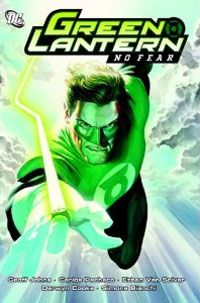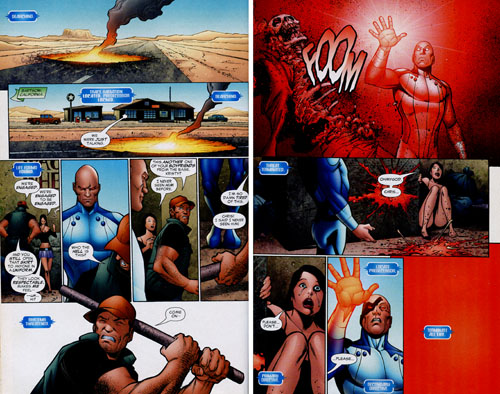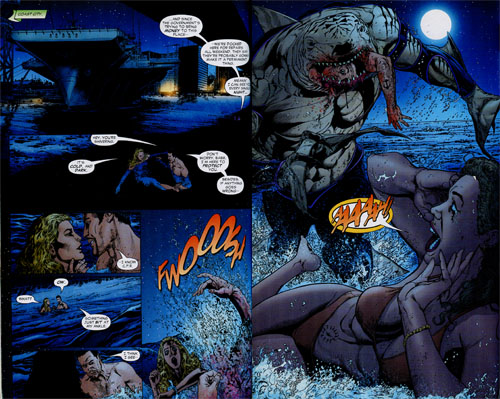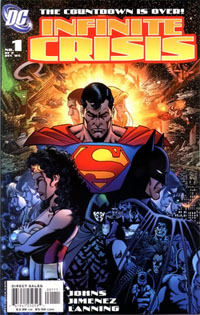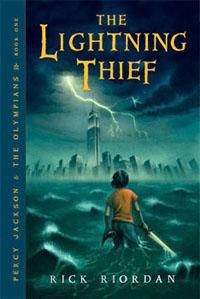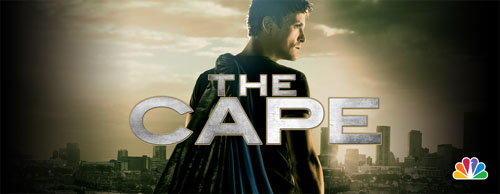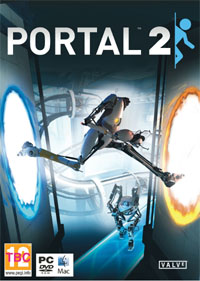 Despite Steam’s DRM and Valve’s demonstrable anti-consumer values, I found it impossible to resist picking up a copy of Portal 2. I have no decent excuse for this; Valve just seems to be the only company that can get me to routinely disregard my own self-interest in this regard.
Despite Steam’s DRM and Valve’s demonstrable anti-consumer values, I found it impossible to resist picking up a copy of Portal 2. I have no decent excuse for this; Valve just seems to be the only company that can get me to routinely disregard my own self-interest in this regard.
The original Portal, of course, was a gem of a game. It took a single, innovative mechanic and fully explored it in almost every way imaginable. And it wedded that experience to an environment and a plot that were similarly laser-sharp in their focus.
When I saw the previews for Portal 2, I was concerned by what appeared to be a grabbag of new mechanics: Several different gels, launching pads, bombs, and a selection of energy fields. I thought it likely that the game was going to lose focus in an effort to find “the next portal gun” by throwing mechanics at the wall and waiting to see what would stick.
I was pleasantly surprised, however, to discover that this was not the case: Instead of distracting from the portal gun, the new puzzle mechanics feel like they’re unlocking the portal gun’s potential. They’re extending gameplay while keeping the focus firmly on the portal gun itself. If there’s any quibble to be had here, it’s that the puzzle designs don’t feel quite as crisp or complete. Unlike the original, Portal 2 feels like its left something on the table. (On the other hand, I haven’t played the cooperative campaign yet, so maybe things will be pushed farther there.)
Unfortunately, however, I was still right about the game losing focus: The story, world-building, and characters are all over the place. Instead of the original game’s intensity, Portal 2 diffuses itself across a hodgepodge of elements.
I probably should have been more suspicious going in. I know that when they rewrote the ending of Portal I was skeptical. (In my experience, the biggest mistake a sequel can make is trying to reset the clock. Pulling a Lucas and rewriting your original game in order to set things up for the sequel to reset the clock almost certainly isn’t a good idea.) But this really felt more like Portal fanfiction than anything else: Portal was amazing because it gave us something unique; Portal 2 too often feels like people consciously trying to recapture the magic of the original by aping its characteristics.
The story was also far too predictable, in my opinion. In Portal I was frequently surprised. In Portal 2 I was almost always three steps ahead of the story. And about half way through the game, the whole thing jumps the shark pretty severely, in my opinion. (I’ll come back later today and post a spoiler-filled explanation of what I’m talking about in the comments.)
Reflecting upon the game, I am also struck by something else. About midway through the original Portal, the nature of the game suddenly changes radically and something magical happens: You actually feel as if you’re pulling a fast one on the designers. You feel as if you’ve slipped off the rollercoaster and are charting your own course. It’s an illusion, of course, but it works. And since the designers are being personified in the game by GlaDOS, the result is not only incredibly invigorating, but also incredibly immersive.
The scenario in Portal 2 almost universally puts you in the same sort of “behind the carnival doors” sequence… but the effect isn’t the same. Even with the AI screaming on and on about how you’ve thrown a wrench into their plans, you can nevertheless see the hand of the designer all too clearly in every level: Even when you’re off the map, the puzzles are too trite; too predictable; too perfectly constructed to feel as if you’re charting your own course through a natural environment.
Ultimately I feel this was the thing that really pushed Portal over the top into being an all-time classic. And Portal 2 doesn’t get there.
So, what’s my verdict? Portal 2 may not be nearly as good as Portal, but it’s still a lot of fun. I recommend waiting until the price comes down to a more reasonable range, though. I don’t think it’s worth the $40-$50 it’s currently being retailed for.

